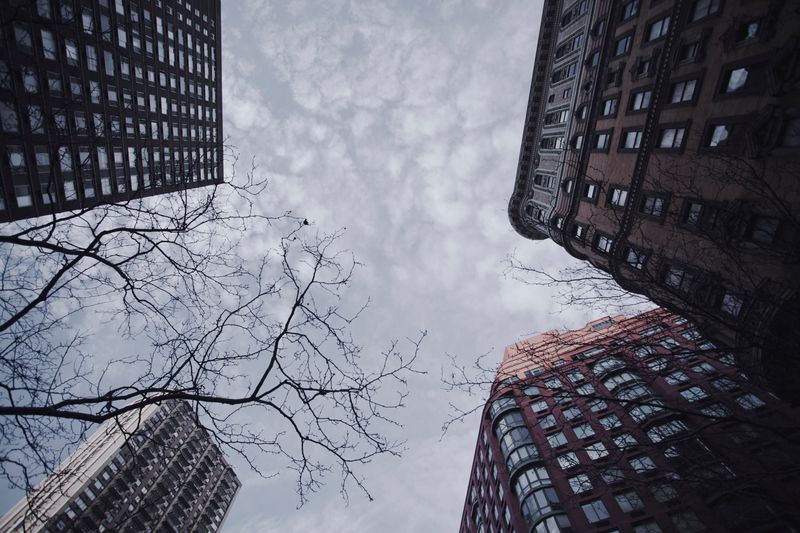Table of Contents
New York City Mayor Should Prioritize Human Rights over Harmful Discourse
Understanding the Complexities of Migration
New York City Mayor Eric Adams recently embarked on a four-day trip to Mexico, Ecuador, and Colombia to gain a better understanding of the challenges faced by migrants and refugees. While this trip presents an opportunity for Mayor Adams to witness firsthand the human rights crises that drive many individuals to leave their countries and seek asylum in the United States, his previous statements and rhetoric have raised concerns among immigrant communities and human rights advocates.
Mayor Adams has stated that New York City is “at capacity” and that the arrivals of migrants will “destroy” the city. These harmful statements not only undermine the values of diversity and inclusion that New York City prides itself on but also perpetuate a harmful narrative against immigrants. It is crucial to recognize that immigrants make up nearly a third of New York’s population and contribute significantly to the cultural, economic, and social fabric of the city.
The Push Factors of Migration
To fully comprehend the complexities of migration, Mayor Adams must grasp the underlying reasons that drive people to leave their homes and undertake perilous journeys. The Darién Gap, the region he plans to visit, represents a treacherous route that over 300,000 migrants and refugees have crossed this year. Understanding the experiences of these individuals is essential to formulating effective and compassionate policies.
Venezuelans constitute the largest group crossing the Darién Gap, with more than 350,000 individuals fleeing the humanitarian emergency in their country. Apart from limited access to food and medicine, Venezuelans face abuses by security forces, armed groups, and gangs. Ecuadorians represent the second-largest group crossing the Darién Gap, with soaring levels of homicides and insecurity caused by organized crime groups. Haitians, who make up the third-largest group, are fleeing widespread killings, kidnappings, and sexual violence in their home country.
This snapshot of the populations migrating through the Darién Gap underscores the urgent need for humanitarian assistance and protection. The United States, as a destination for many of these migrants, must prioritize human rights and provide safe and legal pathways for migration.
Shifting the Discourse and Policies
Rather than attempting to discourage migration, Mayor Adams should use his platform to advocate for changes to US migration policies. The Biden administration, in particular, must end deadly migration deterrence policies and rescind its abusive “asylum rule.” It is crucial to implement fair procedures where migrants can be assessed for family relationships and their need to seek asylum, allowing them to be received in safety and with dignity.
Furthermore, Mayor Adams and other US mayors should redirect funds allocated to migration deterrence efforts to support humanitarian groups, strengthen shelter systems, provide legal support, and allocate resources to aid newly arrived migrants. Investing in these areas is not only a moral imperative but also a recognition of the invaluable contributions that migrants make to society.
A Call for Compassion and Understanding
Mayor Adams has a unique opportunity to learn from the experiences of migrants and refugees during his trip. It is essential for him to approach this journey with empathy, compassion, and a willingness to listen to their stories. Engaging with human rights organizations, local communities, and migrants themselves can provide a comprehensive and nuanced understanding of the challenges they face.
As a New York City resident and the daughter of an Ecuadorian immigrant, I call on Mayor Adams to prioritize human rights over harmful discourse. By championing inclusive policies and supporting migrant communities, he can ensure that New York City lives up to its reputation as a beacon of hope and opportunity for all.

<< photo by jimmy teoh >>
The image is for illustrative purposes only and does not depict the actual situation.
You might want to read !
- The Escalating Threat to Human Rights in Russia: The Conviction of a Prominent Activist
- China’s Repression Continues: #MeToo and Labor Activists Demand Release
- Prioritizing Human Rights: An Urgent Call for NYC Mayor to Tackle Harmful Discourse
- Tunisia’s Ongoing Repression: Upholding Justice for Arbitrary Detentions
- The Forced Repatriation Crisis: China’s Controversial Return of 500+ North Koreans
- Breaking Cycles of Impunity: The Importance of Positive Votes on Sudan and Russia by the UN Human Rights Council